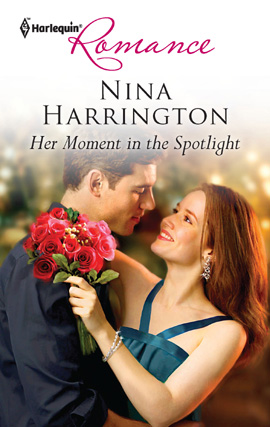I don't think there's a lot of imprint "branding" at the consumer level. Most readers don't really know much about the publishing company when they pick up a book, with one big exception:
Harlequin.
Everyone pretty much knows what to expect. Girl meets boy. Sparks. Some kind of conflict. At least two sex scenes and a happily ever after.
Why don't other publishers have this kind of recognition?
Happy weekend!

3 comments:
I'd think Scholastic shares the same amount of recognition as Harlequin, but as far as the other big publishing companies, you're right. They have a much broader scope in what they publish. You can't see HarperCollins and know you're only going to get nonfiction or contemporary. Just going on their website, you can see their top categories range from cooking to sci-fi.
So no. I'd have to say imprints don't really matter to me. In fact, I can't remember ever looking for a good book based on who published it.
I HAVE looked for books based on who represented it, though. I've noticed agents stick to a particular style and when I find an agent who has similar tastes as my own, I'll look for all the books he/she represents.
I think with Harlequin, the reason it's so recognizable is because it's more or less a formula. They want a specific product, and if yours doesn't conform to their requirements list, then they do not publish you. At least that's the way I've heard it. Don't quote me on this.
I say many thanks to the father of the website admin I read this, because at this website I know a lot of information information that I did not know before his
Tips Untuk Menghilangkan Sakit Gigi Bagi Ibu Menyusui
Pengobatan Tumor Bibir
Cara Alami Menghilangkan Migren
Obat Untuk Menghilangkan Lemak Di Perut Dan Pinggang
Tips Agar Kuat Dan Tahan Lama Bercinta Di Atas Ranjang
Makanan Yang Di Larang Bagi Penderita Syaraf Kejepit
Biopsi TBC Kelenjar
Normalkah Sakit Perut Saat Hamil
Post a Comment